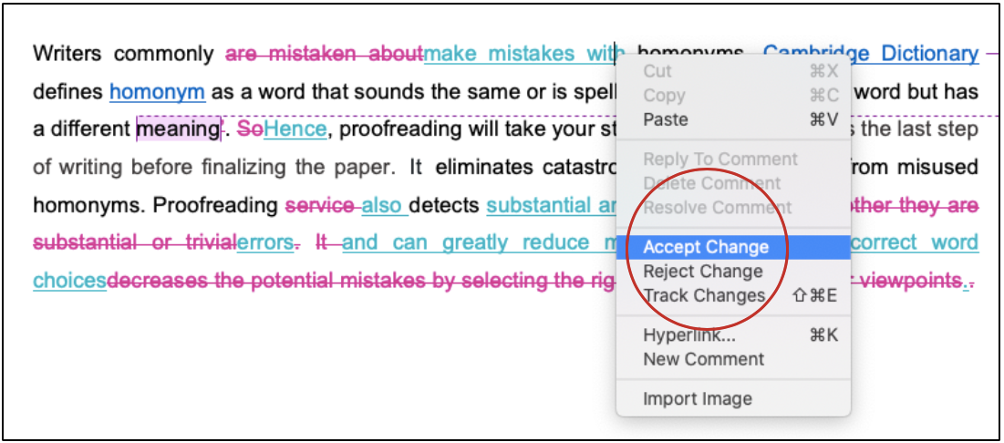It is not uncommon for individuals, academic and nonacademic to use “thesis” and “research paper” interchangeably. However, while the thesis vs. research paper puzzle might seem amusing to some, for graduate, postgraduate and doctoral students, knowing the differences between the two is crucial. Not only does a clear demarcation of the two terms help you acquire a precise approach toward writing each of them, but it also helps you keep in mind the subtle nuances that go into creating the two documents. This brief guide discusses the main difference between a thesis and a research paper.

This article discusses the main difference between a thesis and a research paper. To give you an opportunity to practice proofreading, we have left a few spelling, punctuation, or grammatical errors in the text. See if you can spot them! If you spot the errors correctly, you will be entitled to a 10% discount.
It is not uncommon for individuals, academic and nonacademic to use “thesis” and “research paper” interchangeably. After all, both terms share the same domain, academic writing. Moreover, characteristics like the writing style, tone, and structure of a thesis and research paper are also homogenous to a certain degree. Hence, it is not surprising that many people mistake one for the other.
However, while the thesis vs. research paper puzzle might seem amusing to some, for graduate, postgraduate and doctoral students, knowing the differences between the two is crucial. Not only does a clear demarcation of the two terms help you acquire a precise approach toward writing each of them, but it also helps you keep in mind the subtle nuances that go into creating the two documents.
The first step to discerning between a thesis and research paper is to know what they signify.
Thesis: A thesis or a dissertation is an academic document that a candidate writes to acquire a university degree or similar qualification. Students typically submit a thesis at the end of their final academic term. It generally consists of putting forward an argument and backing it up with individual research and existing data.
Research Paper: A research paper is also an academic document, albeit shorter compared to a thesis. It consists of conducting independent and extensive research on a topic and compiling the data in a structured and comprehensible form. A research paper demonstrates a student's academic prowess in their field of study along with strong analytical skills.
Publishing Articles in Peer-Reviewed Journals: A Comprehensive Guide
10 Free Online Journal and Research Databases for Researchers
Now that we have a fundamental understanding of a thesis and a research paper, it is time to dig deeper. To the untrained eye, a research paper and a thesis might seem similar. However, there are some differences, concrete and subtle, that set the two apart.
The objective behind writing a thesis is to obtain a master's degree or doctorate and the ilk. Hence, it needs to exemplify the scope of your knowledge in your study field. That is why choosing an intriguing thesis topic and putting forward your arguments convincingly in favor of it is crucial.
A research paper is written as a part of a course's curriculum or written for publication in a peer-review journal. Its purpose is to contribute something new to the knowledge base of its topic.
Although both documents share quite a few similarities in their structures, the framework of a thesis is more rigid. Also, almost every university has its proprietary guidelines set out for thesis writing.
Comparatively, a research paper only needs to keep the IMRAD format consistent throughout its length. When planning to publish your research paper in a peer-review journal, you also must follow your target journal guidelines.
A thesis is an extensive document encompassing the entire duration of a master's or doctoral course and as such, it takes months and even years to write.
A research paper, being less lengthy, typically takes a few weeks or a few months to complete.
Writing a thesis entails working with a faculty supervisor to ensure that you are on the right track. However, a research paper is more of a solo project and rarely needs a dedicated supervisor to oversee.
The final stage of thesis completion is a viva voce examination and a thesis defense. It includes proffering your thesis to the examination board or a thesis committee for a questionnaire and related discussions. Whether or not you will receive a degree depends on the result of this examination and the defense.
A research paper is said to be complete when you finalize a draft, check it for plagiarism, and proofread for any language and contextual errors. Now all that's left is to submit it to the assigned authority.
In the context of academic writing, a thesis and a research paper might appear the same. But, there are some fundamental differences that set apart the two writing formats. However, since both the documents come under the scope of academic writing, they also share some similarities. Both require formal language, formal tone, factually correct information & proper citations. Also, editing and proofreading are a must for both. Editing and Proofreading ensure that your document is properly formatted and devoid of all grammatical & contextual errors. So, the next time when you come across a thesis vs. research paper argument, keep these differences in mind.
8 Benefits of Using Professional Proofreading and Editing Services
8 Benefits of Using Professional Proofreading and Editing Services
Achieve What You Want with Academic Editing and Proofreading
Best Edit & Proof expert editors and proofreaders focus on offering papers with proper tone, content, and style of academic writing, and also provide an upscale editing and proofreading service for you. If you consider our pieces of advice, you will witness a notable increase in the chance for your research manuscript to be accepted by the publishers. We work together as an academic writing style guide by bestowing subject-area editing and proofreading around several categorized writing styles. With the group of our expert editors, you will always find us all set to help you identify the tone and style that your manuscript needs to get a nod from the publishers.

You can also avail of our assistance if you are looking for editors who can format your manuscript, or just check on the particular styles for the formatting task as per the guidelines provided to you, e.g., APA, MLA, or Chicago/Turabian styles. Best Edit & Proof editors and proofreaders provide all sorts of academic writing help, including editing and proofreading services, using our user-friendly website, and a streamlined ordering process.
Visit our order page if you want our subject-area editors or language experts to work on your manuscript to improve its tone and style and give it a perfect academic tone and style through proper editing and proofreading. The process of submitting a paper is very easy and quick. Click here to find out how it works.
Our pricing is based on the type of service you avail of here, be it editing or proofreading. We charge on the basis of the word count of your manuscript that you submit for editing and proofreading and the turnaround time it takes to get it done. If you want to get an instant price quote for your project, copy and paste your document or enter your word count into our pricing calculator.
Contact us to get support with academic editing and proofreading. We have a 24/7 active live chat mode to offer you direct support along with qualified editors to refine and furbish your manuscript.
Follow us on Twitter, LinkedIn, Facebook, Instagram, and Medium.
For more posts, click here.
How to Determine Variability in a Dataset
14.10.2023
How to Determine Central Tendency
19.02.2023
How to Specify Study Variables in Research Papers?
14.01.2023
Population vs Sample | Sampling Methods for a Dissertation
14.01.2023
7 Issues to Avoid That may Dent the Quality of Thesis Writing
18.12.2022
How to Ensure the Quality of Academic Writing in a Thesis and Dissertation?
04.12.2022
How to Define Population and Sample in a Dissertation?
03.12.2022

Starting an academic study can be an overwhelming task. After all, it is a very systematic way of studying and involves many procedures and methods that you cannot skip or go around. One of the most prominent parts of research is the research methods that you adopt to get your results.
Continue Reading
This reference guide explains how to format your academic documents in Microsoft Word 2022, giving you the fundamental rules for formatting your academic papers as described in most guidelines, such as MLA and APA styles. The rules discussed in this guide apply to most of the academic papers you will submit as college assignments or articles for journals.
Continue Reading
Understanding the common types of plagiarism will help us to comprehend the scope of the question and answer the question of ‘‘what is plagiarism’’. Some common examples of plagiarism are copying texts or ideas without referencing, incorrect referencing, without referring to someone else's sentence structure even if you change words.
Continue Reading
Writing articles for journals requires scholars to possess exceptional writing skills and awareness of their subject matter. They need to write such that their manuscript relays its central idea explicitly to the readers. In addition, they need to abide by strict writing conventions and best practices to befit the parameters of journal articles. It is not uncommon for research initiates and, at times, even experts to struggle with the article writing process. This article aims to mitigate some apprehension associated with writing journal articles by enlisting and expounding upon some essential writing tips.
Continue Reading
Formal writing is essential to academic essays, a thesis, or a dissertation. Many issues may dent your writing. This article covers 7 critical ones to avoid that may affect the quality of thesis and dissertation writing.
Continue Reading